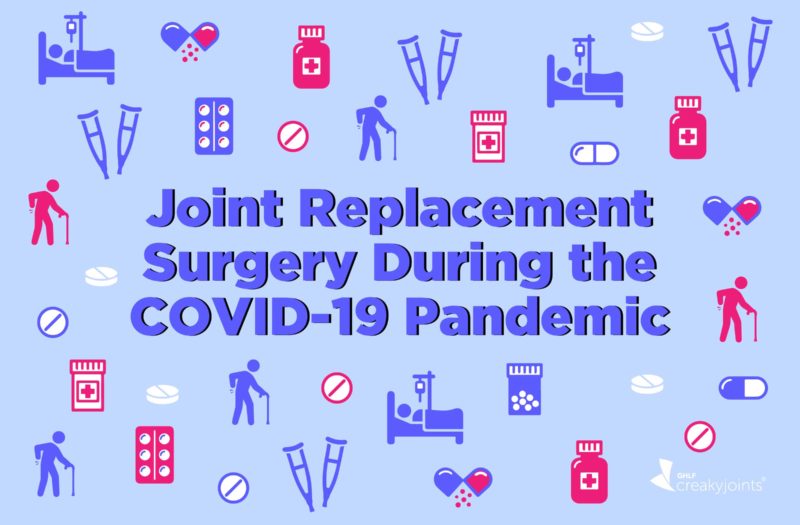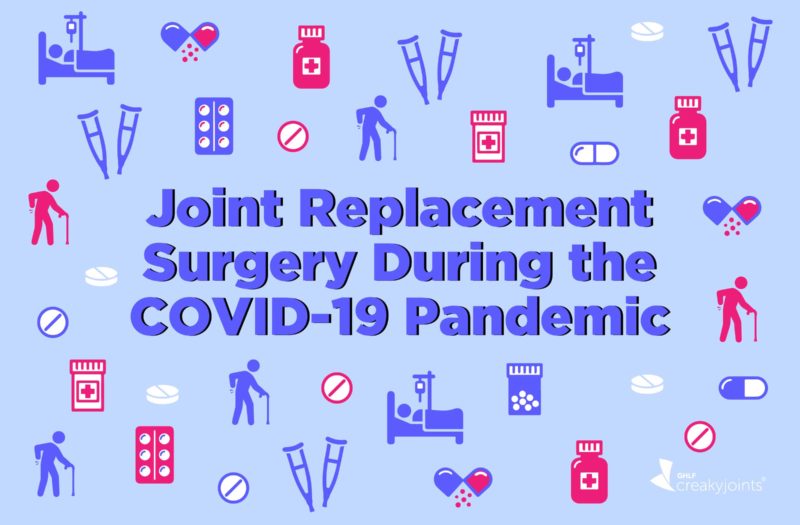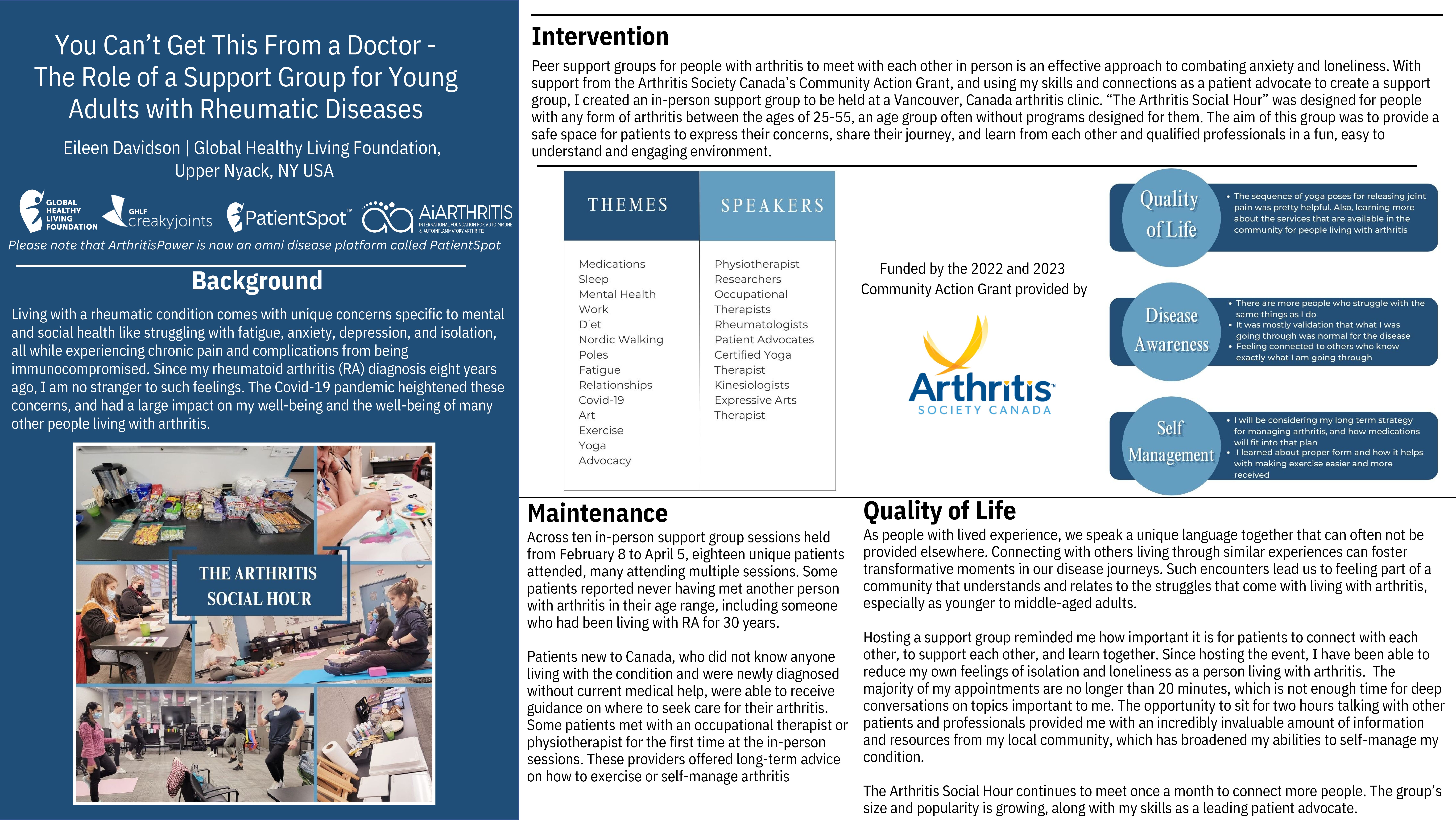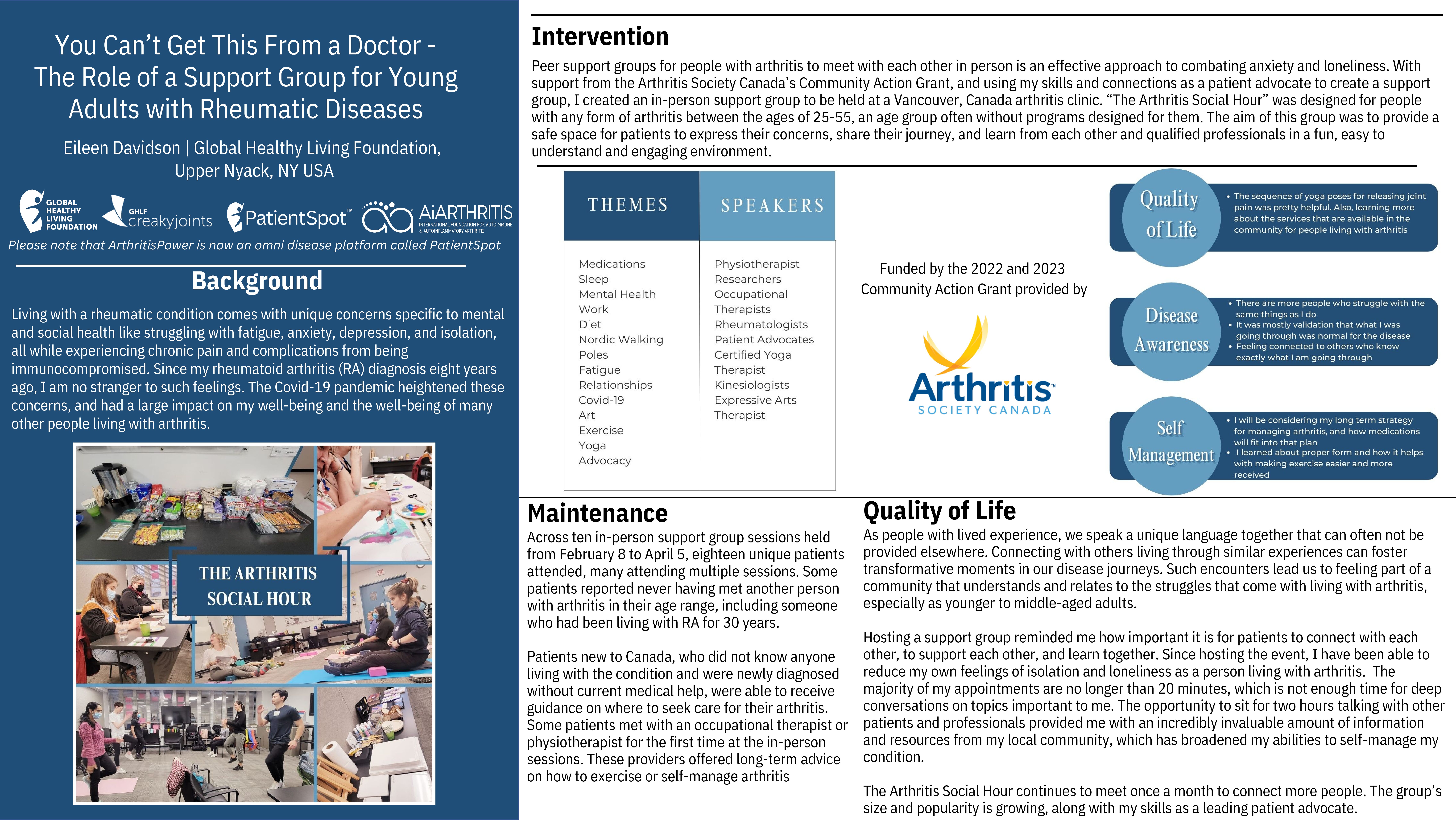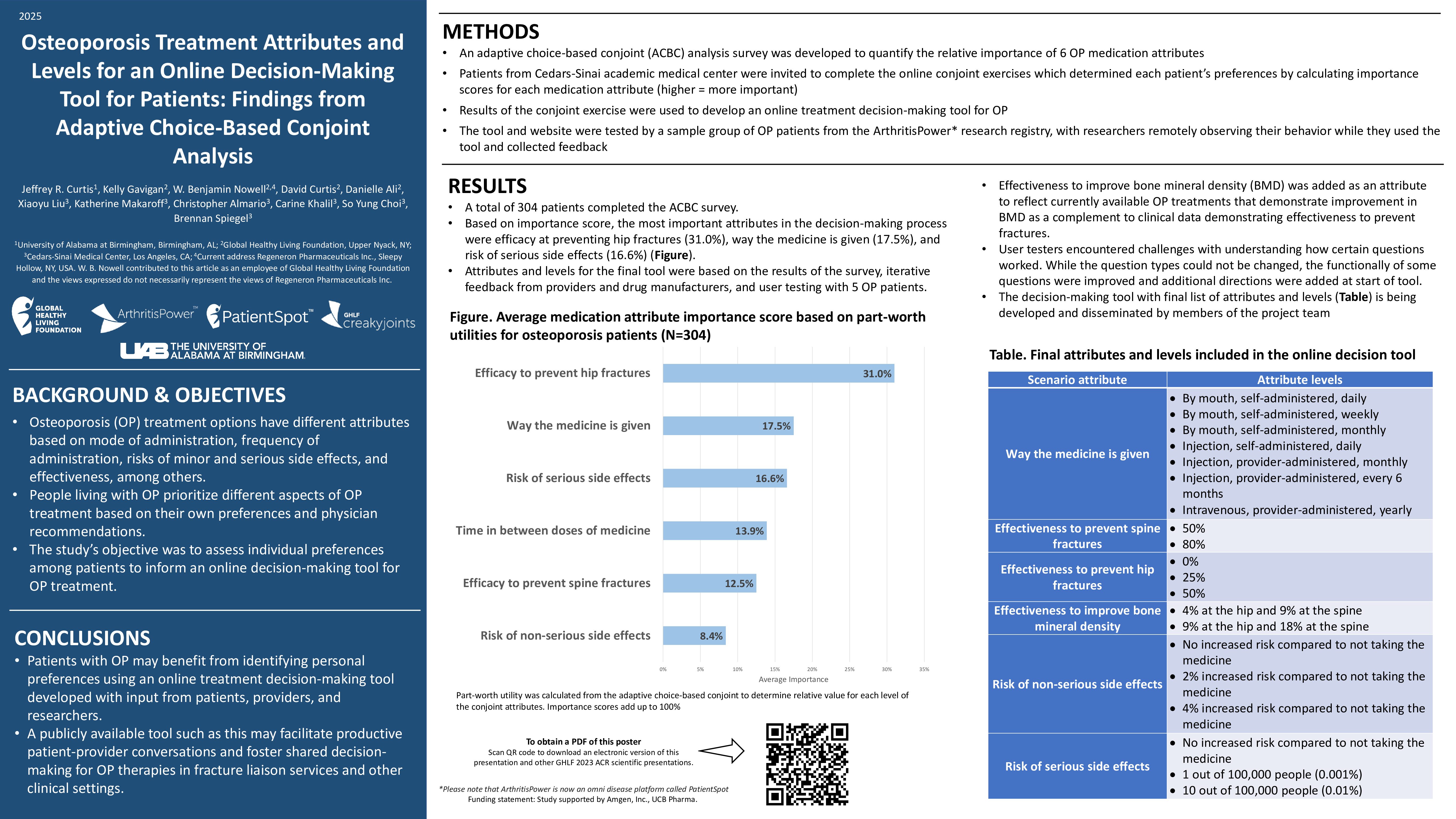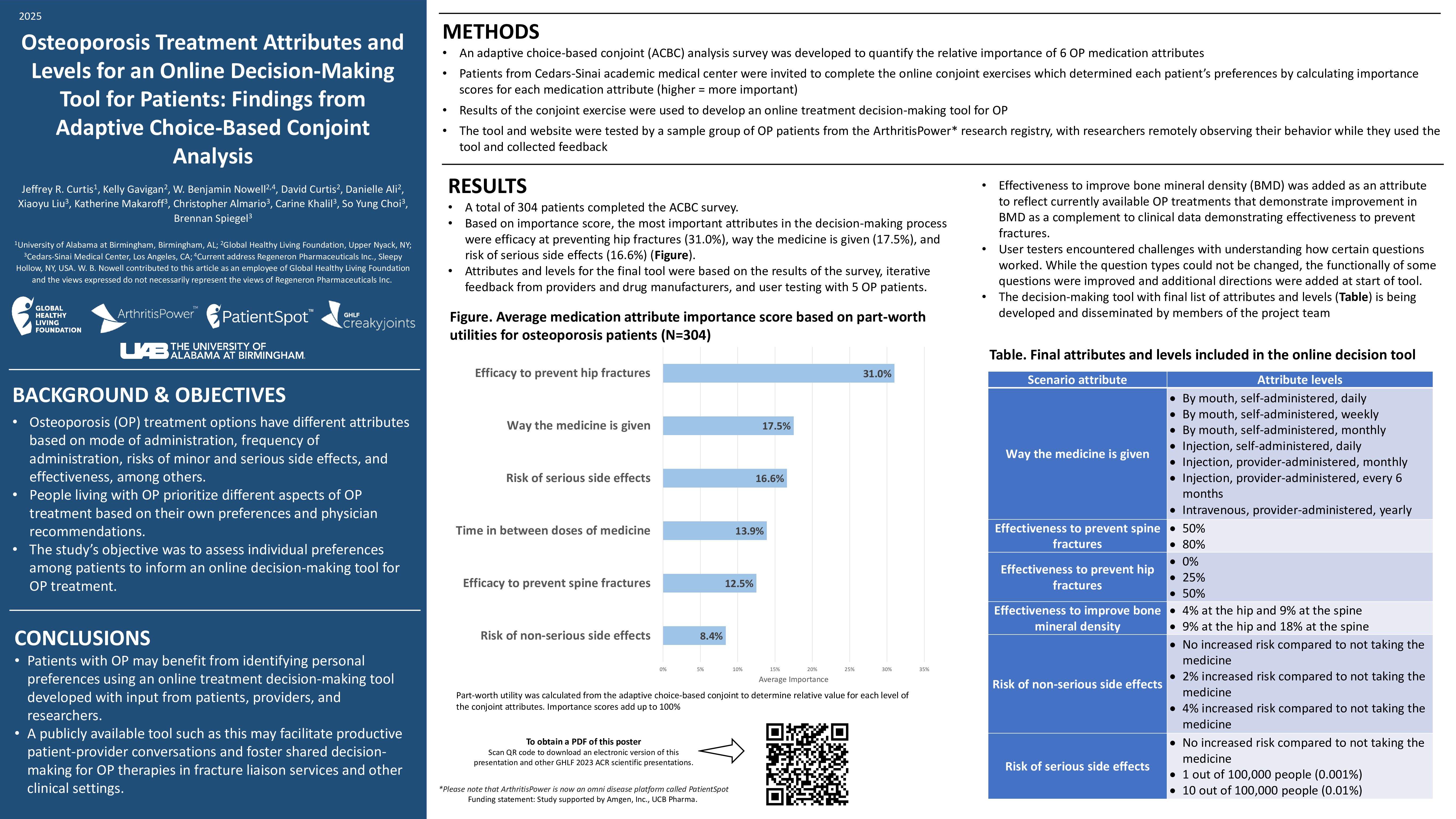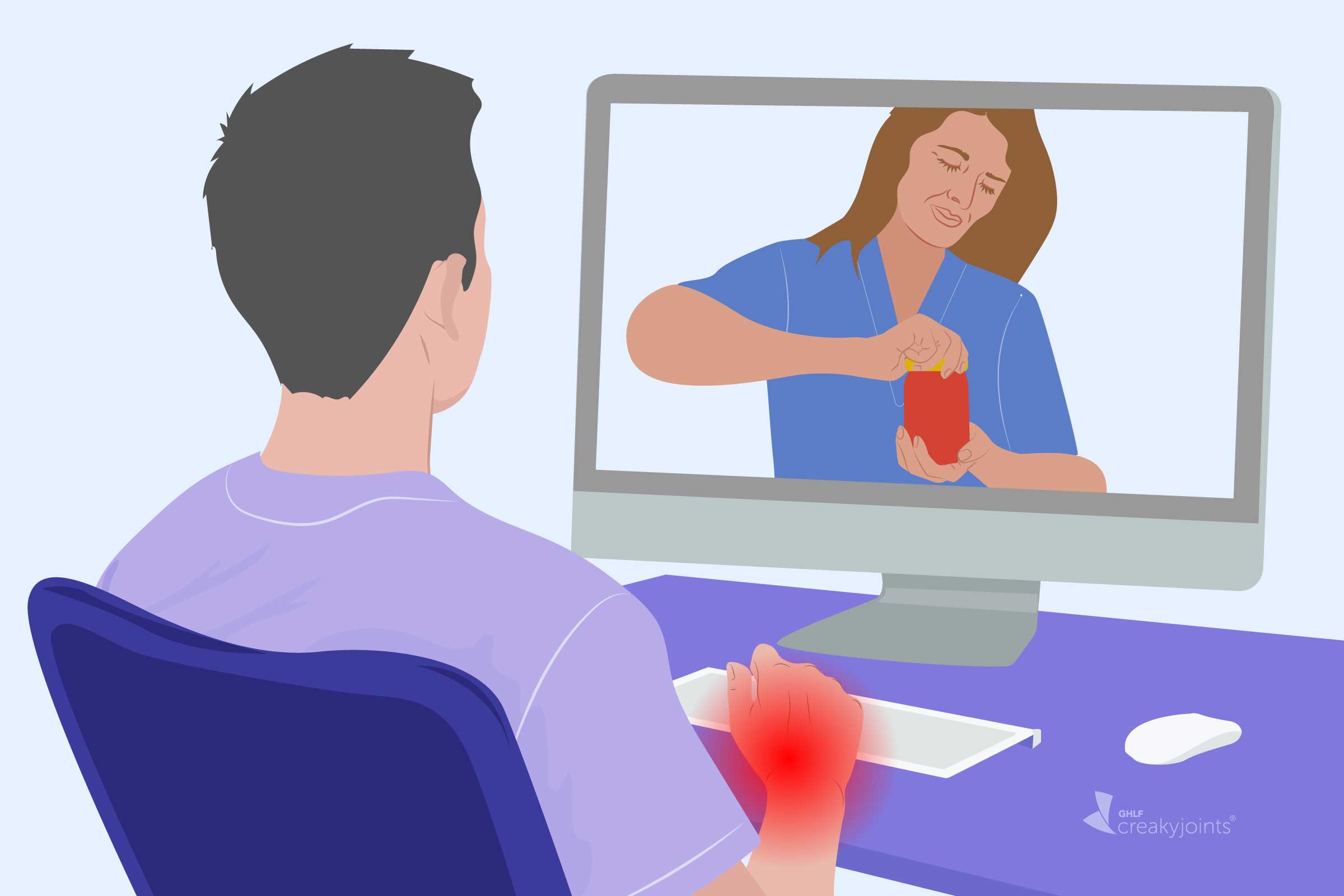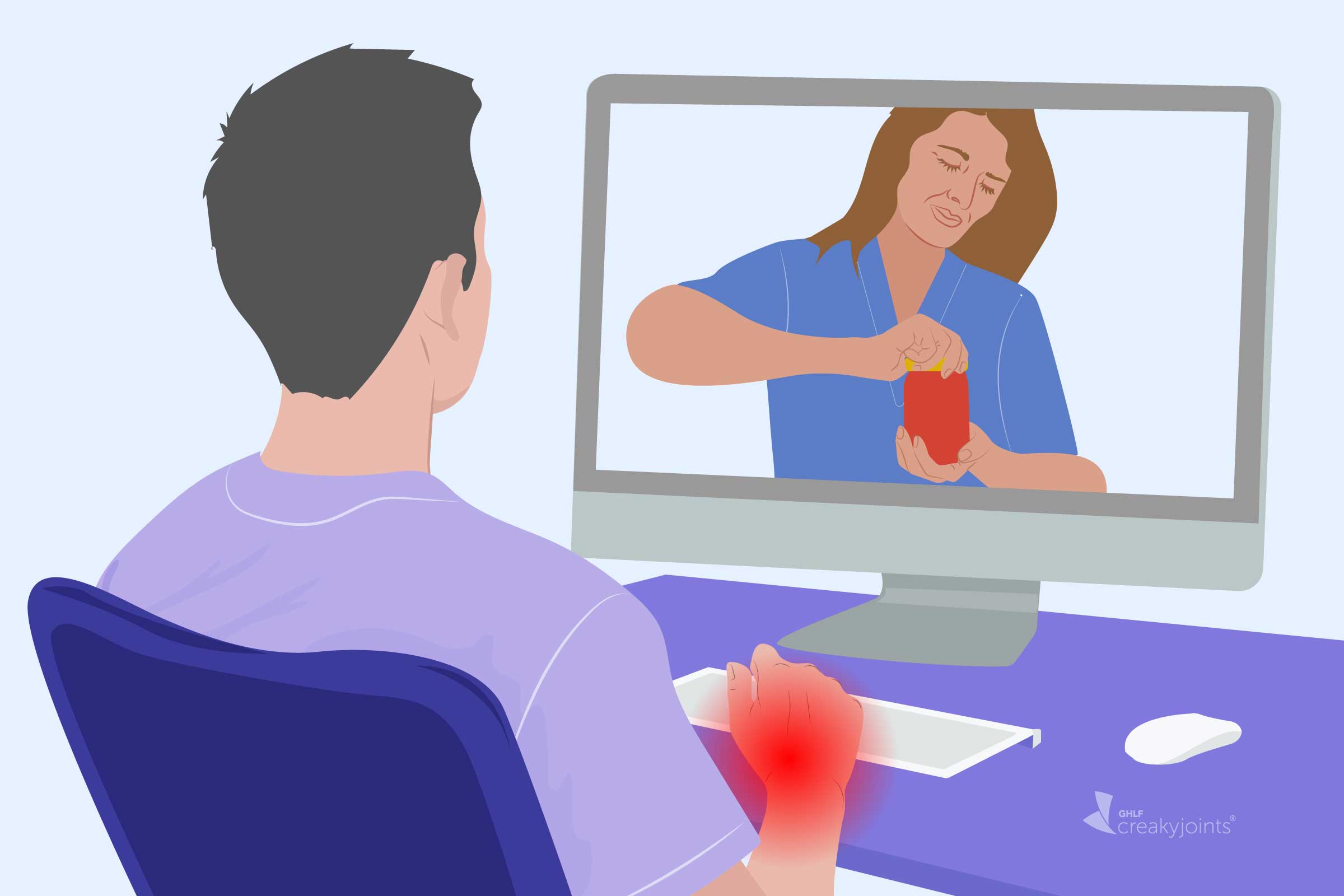Learn more about our FREE COVID-19 Patient Support Program for chronic illness patients and their loved ones.
The COVID-19 pandemic has created endless uncertainties about what activities are safe, when vaccines will be available, and how to balance smart precautions with staying sane. But for those coping with chronic knee, hip, or other joint pain and may need surgery, there’s a whole other list of concerns, from “Is it okay to schedule surgery now?” to “How much will my condition worsen if I wait?”
Can a joint replacement surgery be done safely during the pandemic?
“I think the answer is yes — as long as the right protocols are in place,” says Steven B. Haas, MD, Chief of the Knee Service at Hospital for Special Surgery in New York City. It all starts with a conversation with your doctor about factors such as the severity of your joint damage as well as your risk for severe COVID-19 infection. “For the right patient with the right level of disease, and with the right protections, it can be done safely.”
Spring Shutdown to Summer Catch-up
The early 2020 arrival of COVID-19 in the United States left orthopedic surgeons and their patients scrambling. Elective surgeries were cancelled, which includes the vast majority of joint replacement procedures (except for emergencies like fractures and dislocations). Some patients who had just undergone surgery were stranded with uncertain physical therapy (PT) logistics. Others looking ahead to surgery were either eager to delay or desperate to proceed.
“There was a spectrum of responses,” says William Macaulay, MD, Chief of the Division of Adult Reconstructive Surgery in the Department of Orthopedic Surgery at NYU Langone Health in New York City. “Certain patients in the beginning of March saw what was going on and said, ‘Let’s get this done now.’ But I’d say more than 70 percent were delighted when we called and said we’re going to put your surgery off for a couple of months.”
According to a May 2020 survey from the American Academy of Orthopaedic Surgeons (AAOS), 34 percent of patients postponed orthopedic surgeries by more than three months.
For some patients, however, the thought of waiting was unbearable.
“Right before we were shut down, I had a patient in their 70s at high risk for COVID, and I asked if they wanted to reschedule,” Dr. Haas remembers. “They said, ‘Doc, I don’t care about COVID, I can’t live like this.’ We went ahead with the surgery and they did an amazing job.”
Practices and hospitals focused on developing protocols for operating during the pandemic. “During the two-plus months we were not doing regular surgery we had six to eight Zoom meetings a day to deal with the issues and develop new safety protocols. It was an incredibly busy time, but that’s the way to do things safely,” says Dr. Haas.
One topic was the question of whether there would be clotting issues in people with current or previous COVID-19 infection, which may be a factor during surgery. “We began studies on clotting that are ongoing, but preliminarily we did not find any issues with it,” he says. (COVID-19 has been shown to cause blood clots as a complication.)
In the AAOS survey, surgeon respondents nationwide cited other considerations for when they thought they could resume surgeries safely. When it came to factors determining when surgeries could safely restart:
- 44% of doctors said COVID-19 infection rates were a factor
- 41% of doctors said having the ability to test every patient for COVID-19 before surgery was a factor
As summer neared and elective procedures were allowed to resume, orthopedic surgeons around the country shifted to catching up on backlogged cases. “It slowly built up from May through August when we hit 100 percent of our February volume and just continued to tick along,” says Dr. Macaulay.
Dr. Haas adds that many patients were eager to get on his surgery schedule: “Waiting had been hard for some. When we came back online there was a whole group who didn’t really care about COVID, they just wanted to get fixed.”
But other patients still put off setting a date. Forty-eight percent of people considering joint replacement surgery in 2020 postponed the procedure due to pandemic-related concerns, even after elective surgeries resumed, according to a national poll by Zimmer Biomet, which manufactures medical devices used in orthopedic surgeries.
How to Handle Waiting for Surgery
Whether a patient is choosing to delay surgery, or they’re trying to reschedule and encountering delays, the wait for relief can be challenging.
“I was due to have my knees replaced at the start of [the pandemic] in March,” Tracey E. shared with CreakyJoints via Facebook. “It has so far been cancelled four times, and I now don’t even have a date for it. In the meantime, my hip now needs replacing.”
She is one of many people trying to navigate pain and mobility issues while waiting out surgery delays. And she’s not alone. Among patients who had postponed their joint replacement surgery, 71 percent reported that they experienced increased pain, 58 percent said they experienced mobility changes, and 36 percent said they experienced worsening sleep while waiting, according to the Zimmer Biomet survey.
“For most patients it’s been manageable, but for some it’s been pretty hard,” says Dr. Haas, who has been managing his patients with anti-inflammatory medications and non-narcotic pain medications, as well as heating and cooling therapies. He’s also been focusing on patients’ activity levels. “People weren’t getting out of the house very much, and it’s been shown that arthritis gets worse without activity. We tried to encourage mobility and set them up with physical teletherapy.”
Orthopedic surgeon Sean Sutphen, DO, a hip and knee replacement specialist at the Illinois Bone & Joint Institute, says some of his patients waiting for surgery have been receiving injections of steroids or hyaluronic acid. Others have been relying on canes and walkers, as well as trying to lose weight. “Sometimes they’re just resting because they’re in so much pain they have trouble moving around,” Dr. Macaulay adds.
The American Academy of Orthopaedic Surgeons offers some recommendations to help patients who are awaiting surgery, including:
- Avoiding activities that cause pain
- Using a walking aid, such as a cane, crutches, or a walker
- Applying heat or ice to the affected joint
- Taking nonsteroidal anti-inflammatory drugs (NSAIDs) for swelling and pain. These include ibuprofen (Advil), naproxen (Aleve), or aspirin. Other pain relievers, such as acetaminophen (Tylenol) or topic pain relief creams may help too.
- Getting a steroid injection in the affected joint
In addition, low-impact and stretching exercises, as well as weight loss, can help with muscle and joint mobility, says the American Association of Hip and Knee Surgeons.
And what’s happening with the underlying joint condition during this waiting period?
“I’ve had patients trying to stay away from the hospital because of everything going on but just couldn’t anymore,” says Matthew Beal, MD, Associate Professor of Orthopedic Surgery and Vice Chair of the Department of Orthopedics for Northwestern University in Chicago. “They now have a horrible-looking knee or a horrible-looking hip on X-ray that needs to be replaced, and they’re stuck because they’re having trouble with mobility.”
But not all doctors are seeing an accumulation of serious cases.
“The advancement over a couple months or even six months of the disease is not so significant that you would actually as the surgeon notice a big change in the pathology,” says Dr. Macaulay.
In other words, for many patients who have osteoarthritis severe enough to require joint replacement surgery, waiting a couple months more won’t necessarily cause dramatic progression or damage. But, of course, this can vary from patient to patient. And no one should have to live with levels of pain and disability that are impacting their daily activities.
Safety Protocols for Joint Replacement Surgery During the Pandemic
When the time does come for surgery, there are a number of protocols in place at medical facilities around the country to protect against COVID-19.
In addition to hospital staff wearing personal protective equipment (PPE) and patients wearing masks (Dr. Sutphen says patients also wear masks during surgery), one main change is COVID-19 screening and testing for all patients during a specific timeframe before surgery. Different institutions designate different timing, with some facilities, for example, requiring a negative COVID-19 nasal swab within five days of surgery and others conducting the test the day of surgery. In addition, some facilities could require patients to quarantine between pre-surgical evaluation and the day of surgery, says the AAOS.
What’s more, operating rooms are undergoing extensive cleaning between procedures, social distancing is being practiced in waiting areas, and clinicians and personnel are regularly screened for COVID-19, says the AAOS. Your surgeon can explain the exact procedures in place at your facility. Read more from the AAOS about what to expect with an elective orthopedic surgery.
The other big change is restrictions on family members being allowed to accompany patients. In many places these restrictions have become more or less strict as pandemic spikes have risen and fallen. Some facilities allow limited visitation, while others only let loved ones drop off and pick up patients at the front entrance.
“I had my knee replaced three weeks ago. The hardest part about it was that my husband could not be with me or visit during my recovery. Thankfully we stayed in contact through social media and video chats several times a day,” CreakyJoints member Tammy R. shared on Facebook.
Some institutions have undertaken additional measures, such as Hospital for Special Surgery installing HEPA air filters in operating rooms, according to Dr. Haas, which may help reduce airborne transmission of the coronavirus.
But other than these protective measures, a lot about the joint replacement process has stayed the same. “It’s still the same anesthetic choice, still the same operation, still the same discharge planning on the backend,” Dr. Beal adds.
This was how it went for CreakyJoints member Lizzette A., who described her hip replacement on Facebook as a pretty run-of-the-mill experience: “Had total hip replacement in June. Was tested for COVID four days prior to surgery. All COVID precautions taken. Surgery went well on Wednesday out of the hospital on Friday.”
Such precautions must be helping because surgeons are happy to report safe outcomes among their patients.
“The biggest bit of good news is that out of the thousands of patients who have had their joint replacements post-COVID in New York at our institution [NYU] none of them to my knowledge has actually been stricken with COVID-19,” says Dr. Macaulay. “Plus, it’s typical that people will socially isolate after surgery for a couple of weeks anyway, so that’s actually easier to do now than it was before.”
Dr. Haas had similar good news to share: “I can tell you none of my patients who had surgery developed COVID in the immediate post-op period.”
Shift to Same-Day Surgeries and Surgery Centers
Same-day joint replacement surgeries are becoming more common as some patients express concerns about staying in a hospital during a pandemic.
“We’ve seen an uptick in same-day discharge patients,” says Dr. Beal, who adds this option is not for all patients. “It has to be somebody who’s motivated and has support. It’s typically — but not always — people who are younger, who are not overweight, and who have fewer medical problems, who can mobilize pretty quickly.”
For example, Hospital for Special Surgery says certain kinds of patients may be better candidates for same-day surgeries:
- Between the ages of 18 and 70
- Have good support at home from family or friends after the surgery
- Generally healthy with no major medical conditions
Barbara A. shared on Facebook she had one such experience: “The hospital I was scheduled at for knee replacement surgery postponed my surgery due to no elective procedures, rescheduled four months later and then seven days quarantine, then COVID tested and seven more days of quarantine. My surgery day I brought one person with me and discharged home that afternoon after surgery due to COVID, no overnight stays.”
Patients are also rethinking where they want to have their surgeries.
“I think some patients are scared to come to a major hospital,” adds Dr. Beal. “They may be happier going to a smaller facility where they have ground level parking, go in, get their surgery, and head home rather than coming to an academic medical center where there can be a huge population of COVID patients. So I think there are definitely differences in where patients are going, and they’re selecting their surgery sites based on concerns over COVID.”
For his part, Dr. Sutphen does rapid recovery total joint replacement in an outpatient surgery center, which allows patients to have a hip or knee procedure and go home within a few hours.
“I scheduled three or four patients yesterday, and we talked about the hospital versus the surgery center, and there was no question all of them want to go to the surgery center,” he says. “They were all healthy, good candidates for outpatient surgery, and for that patient population, outpatient total knee or hip replacement is a wonderful experience. The surgery center allows them to be in a safe setting without being in a hospital, and people do so well with it.”
Changes in Post-Surgery Recovery and Physical Therapy
During the initial spring of 2020 coronavirus surge, Dr. Beal says that his patients struggled to get access to physical therapy facilities. But not all patients have the same therapy needs, he points out. “When it comes to hip replacement, for most patients having their therapy in the hospital then walking once they’re home is more than enough. But when you talk about total knee replacement, therapy becomes critically important.”
Exercise to regain mobility and strength in order to resume daily activities is important for recovery after hip or knee replacement surgery, says the AAOS. Following hip or knee replacement surgery, your orthopedic surgeon and physical therapist may advise getting 20 to 30 minutes of exercise two to three times each day during the early days of recovery. In addition, walking for 30 minutes two to three times each day is also recommended for knee replacement patients.
For those who do need physical therapy after returning home, Dr. Beal’s approach has changed as a result of the pandemic.
“We’ve shifted away from home-based PT because lots of patients were uncomfortable with therapists coming into their home,” says Dr. Beal. “They were much more comfortable having control over where they went and when they went to an outpatient facility. And a lot of outpatient facilities now have gotten their arms around the cleaning protocols and PPE they need to be safer.”
Post-op is also going well in other practices, although different patients can have different therapy preferences. For a period of time after surgery, Dr. Sutphen sends a nurse and therapist to his patients’ homes every other day if their procedure was in the hospital and every day for patients who’d gone to a surgery center. “I’ve had no issues in terms of home health nursing or therapy. Patients have had excellent outcomes,” he says. “I’d say the outcomes are the same as they were before COVID. Patients are doing just as well, getting the same amount of therapy, and feeling safe while doing it.”
Some practices are also finding success with teletherapy. Hospital for Special Surgery, for example, has a telemedicine program called HHS At Home. “With this home physical therapy program you have the therapist on the [screen] doing personalized physical therapy and monitoring exercise with the patients. The results have been outstanding. Our post-op patients during COVID are doing just as well as those before COVID,” says Dr. Haas.
The Upsides of Joint Replacement Therapy During the Pandemic
There have also been some positives to getting joint replacement surgery in 2020, as well as a few helpful lessons.
Telemedicine
A big plus has been an appreciation for the value of telemedicine. “We had only small amounts of telemedicine before COVID. But I’ve found through telemedicine you can make a good connection with people, even if you can’t do physical exams,” says Dr. Haas. “The patient often has family members with them, they’re comfortable at home, I get to see their environment, and I’m not distracted by having to enter data on my computer.”
Recovering at home and working remotely
What’s more, for some patients, being forced to stay home after recovering from surgery is a good thing. “For many people this is actually a better time to have surgery because they’re working from home, so they can get back to work at home in a week or two, whereas getting back to work normally may have taken a month or more,” says Dr. Haas.
Considering Joint Replacement Surgery: What to Discuss with Your Doctor
Ultimately, the question of whether or not to proceed with joint replacement surgery during the COVID-19 pandemic has different answers depending on the severity of your health condition, as well as your risk for severe COVID-19 infection based on your age and overall health. Reaching the right decision involves an open conversation with your doctor.
“When I have this discussion I ask, ‘How much is your condition affecting your quality of life?’ If the patient says it’s significantly affecting their life, we may move forward with surgery. For patients who are having moderate pain but can still do most activities, we might hold off,” says Dr. Sutphen.
In addition, you can ask questions about the facility where the surgery will be performed. “If it’s at a hospital, does it have safety protocols set up to do COVID-19 testing and monitoring?” says Dr. Haas.
But not all decisions are straightforward. While, say, an 80-year-old with underlying conditions who has moderate joint pain might wait, and a healthy 55-year-old in significant pain might proceed, there are gray areas. “If you’re an older adult with comorbidities, but you can barely walk around the house and you’re deteriorating and possibly getting depressed as a result, we have to have those individual conversations to see if surgery is the right thing,” says Dr. Haas. “Patients just need to have the talk with their provider. And if they and their doctor feel like having surgery now is best, we’ve shown it can be done safely.”
Get Free Coronavirus Support for Chronic Illness Patients
Join the Global Healthy Living Foundation’s free COVID-19 Support Program for chronic illness patients and their families. We will be providing updated information, community support, and other resources tailored specifically to your health and safety. Join now.
COVID-19 Surgical Volume Impact Survey. American Academy of Orthopaedic Surgeons. May 2020.https://www.aaos.org/globalassets/about/covid-19/research/covid-19-surgical-volume-impact-survey-final.pdf.
Interview with Matthew Beal, MD, Associate Professor of Orthopedic Surgery and Vice Chair of the Department of Orthopedics for Northwestern University in Chicago
Interview with Sean Sutphen, DO, orthopedic surgeon at the Illinois Bone & Joint Institute
Interview with Steven B. Haas, MD, Chief of the Knee Service at Hospital for Special Surgery in New York City
Interview with William Macaulay, MD, Chief of the Division of Adult Reconstructive Surgery in the Department of Orthopedic Surgery at NYU Langone Health in New York City
Outpatient Hip Replacement Surgery: Frequently Asked Questions. Hospital for Special Surgery. April 6, 2020. https://www.hss.edu/conditions_outpatient-hip-replacement-surgery.asp.
Total Knee Replacement Exercise Guide. OrthoInfo. American Academy of Orthopaedic Surgeons. February 2017. https://orthoinfo.aaos.org/en/recovery/total-knee-replacement-exercise-guide.
Waiting or Recovering from Joint Replacement Surgery during the Time of COVID-19. American Association of Hip and Knee Surgeons. https://hipknee.aahks.org/joint-care-at-home-during-covid-19.
What to Do If Your Orthopaedic Surgery Is Postponed. OrthoInfo. American Academy of Orthopaedic Surgeons. December 2020. https://orthoinfo.aaos.org/en/treatment/what-to-do-if-your-orthopaedic-surgery-is-postponed.
Zimmer Biomet Empowers Joint Surgery Candidates Who Have Delayed Procedures. Zimmer Biomet. October 20, 2020. https://investor.zimmerbiomet.com/news-and-events/news/2020/10-20-2020-123040107.

